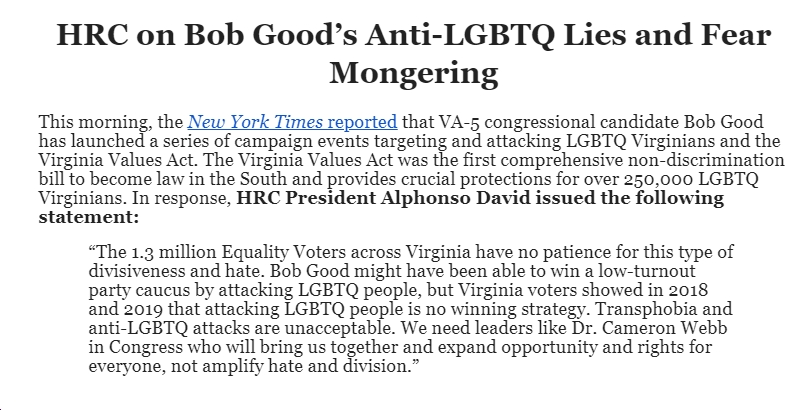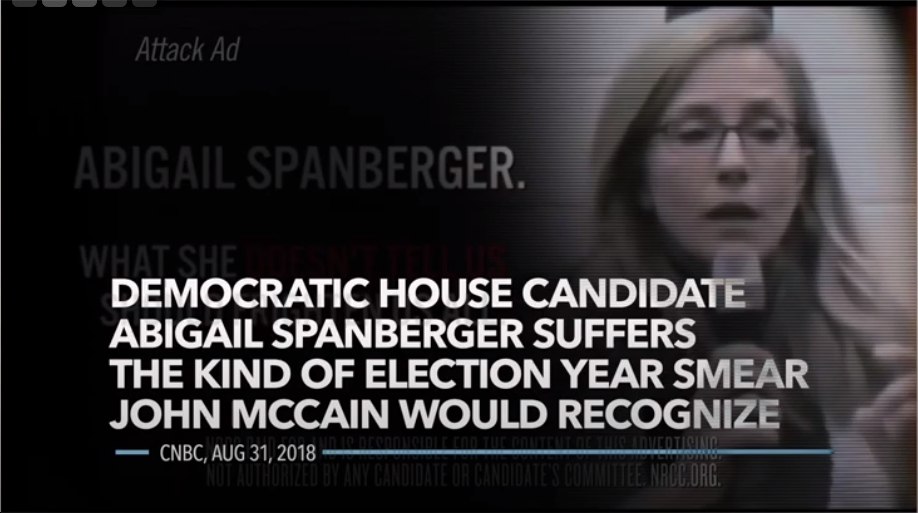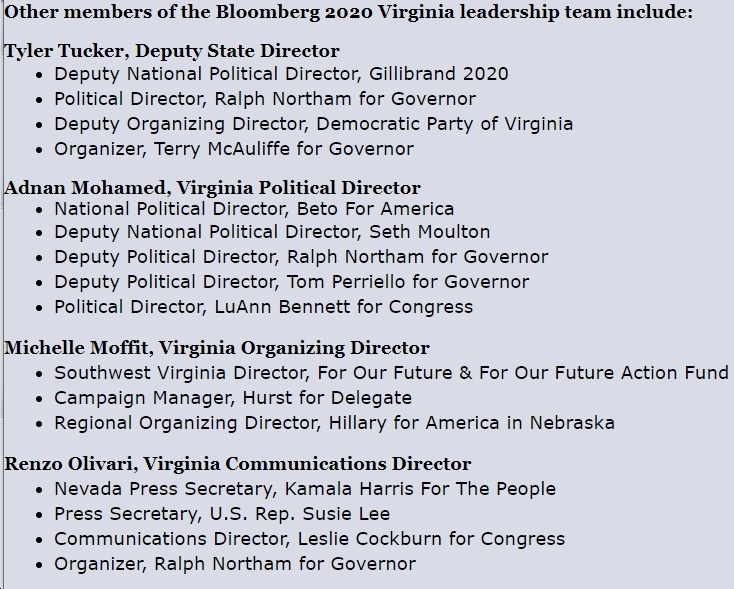With the 2019 Virginia elections in the rear-view mirror, Cindy and I have been looking ahead to 2020, including the Democratic campaigns for president. So far, Cindy and I have looked at Michael Bloomberg, Sen. Kamala Harris (now withdrawn from the race), Sen. Amy Klobuchar, Mayor Pete Buttigieg, former VP Joe Biden, Sen. Elizabeth Warren. and Sen. Bernie Sanders. Today, I’ll focus on Sen. Cory Booker’s campaign.
First off, since this is a Virginia-focused blog, it’s worth noting that Sen. Booker campaigned here in Virginia – speaking at a canvass kickoff in Woodbridge, along with other Prince William County Democratic candidates – leading up to the election on 11/5/19. Thanks to Sen. Booker for doing that, and to all the other 2020 Democratic candidates who helped out as well. Also, Cindy “missed a call from Cory Booker,” to thank her for some positive tweets, “which he said inspired him.” Pretty cool.
Now, some background on Booker and his campaign for president.
- Booker, who is 50 years old, has a highly impressive bio: “attended Stanford University on a football scholarship and helped fellow students by working as a peer crisis counselor. He also spent time mentoring middle school students in East Palo Alto. Later, he studied at the University of Oxford on a Rhodes Scholarship and graduated from Yale Law School in 1997.” Then Booker ” moved into a public housing project in Newark, where he teamed up with the other tenants to take on a slumlord accused of intentional neglect of the property and won. As a city council member, he drew attention to the violence that plagued the city and called for efficiency and transparency in City Hall. In 2006, he was elected mayor with 72 percent of the vote” and then reelected in 2010 with 59% of the vote.
- Booker was elected to the U.S. Senate in 2012. Since then, he says that he “has written and championed dozens of bills aimed at addressing our broken criminal justice system, expanding economic opportunity, and fighting for equal justice for everyone,” including ” the First Step Act—a bipartisan bill that, for the first time in decades, makes meaningful reforms to our criminal justice system and begins to reverse the injustices of mass incarceration” and “the Marijuana Justice Act, which would legalize marijuana at the federal level and restore justice to those already convicted of marijuana-related offenses—convictions that disproportionately affect low-income communities and communities of color.”
- As you can see from the following video, Booker’s core message is that we have a “common pain” in America but are “lacking…a sense of common purpose,” and that we need to “come together.” According to Booker, he is the “only Senator who goes home to a low-income, inner-city community [Newark], the first community that took a chance on me.” Booker adds: “We are better when we help each other…I believe that we can build a country where no one is forgotten, no one is left behind…where parents can put food on the table; where there are good-paying jobs with good benefits in every neighborhood; where our criminal justice system keeps us safe instead of shuffling more children into cages and coffins; where we see the faces of our leaders on television and feel pride, not shame.” And, Booker concludes, “Together, America, we will rise.”
- In term of fundraising, Booker had a relatively strong third quarter – raising $6 million, including $2.1 million in the final 10 days after he said he might have to drop out due to lack of money – is nonetheless “still lagging far behind the leaders in the 2020 Democratic presidential primary.” In the past few days, Booker raised more than $1 million in a few days after Kamala Harris dropped out and Booker “issued a call…for maintaining a diverse field of 2020 Democratic presidential candidates.”
- Also worth noting, according to an AP report, is that the Booker campaign is “plot[ting] rebound in wake of Harris’ departure from the race,” with the campaign having “scheduled a high-profile speech in Iowa.”
- On Friday, Booker “shot back at Mike Bloomberg after the former New York City mayor said the New Jersey senator was ‘well spoken’ — saying he shouldn’t have to take him to school on race.” (Bloomberg later said “I probably shouldn’t have used the word,” adding that Booker “is a friend of mine, and he is a Rhodes Scholar, which is much more impressive than my academic background”)
- On the issues, Booker’s website breaks down his “Plan for America” into three categories: “Justice,” “Opportunity” and “American Leadership.” Under “Justice,” Booker lists: “Animal Welfare,” “Criminal Justice,” “Democracy and Voting Rights,” “Equality for LGBTQ People,” “Equality for People with Disabilities,” “Gun Violence,” “Immigration” and “Reproductive Rights.” Under “Opportunity,” Booker lists “College and Workforce Training,” “Economic security and opportunity,” “Health care,” “Housing” and “Public Education.” And under “American Leadership,” Booker lists “Climate Change and Environmental Justice,” “National Security” and “Veterans and Military Families.” An excellent list!
- In terms of his personal life, Booker “has never been married, and in 2013 he was named one of Town & Country‘s ‘Top 40 Bachelors'”; “regularly exercises and has been a vegetarian since 1992, when he was a student at Oxford University in the UK”; “abstains from alcohol and ‘has no known vices or addictions’ other than coffee”; “has been romantically linked to poet Cleo Wade” and, more recently, to actress Rosario Dawson.
- The polling since late 2018 has had Booker mostly in the low-to-mid single digits. Booker’s poll numbers have ranged from a low of about 1.2% in early October 2019 a high of 6.0% back in February 2019. Right now, according to the Real Clear Politics polling average, Booker’s 2.0% share of the Democratic primary electorate puts him behind Joe Biden (27.8%), Bernie Sanders (15.6%), Elizabeth Warren (14.2%), Pete Buttigieg (11.4%), Michael Bloomberg (4.0%), Andrew Yang (2.6%) and Amy Klobuchar (2.4%).
- In Iowa, Booker is currently at 1.7%, behind Buttigieg (24.0%), Sanders (18.3%), Warren (17.7%) Biden (16.3%), Klobuchar (5.3%), Yang (2.7%) and Tom Steyer (2.3%). In New Hampshire, Booker (2.3%) trails Buttigieg (20.0%), Sanders (17.0%), Warren (14.3%), Biden (13.7%), Gabbard (5.0%), Yang (3.7%), Steyer (3.3%) and Klobuchar (3.0%). In South Carolina, where the Democratic electorate is heavily African-American, Booker (2.3%) trails Biden (35.3%), Warren (16.3%), Sanders (12.8%), Buttigieg (6.5%), Steyer (4.0%) and Yang (2.5%).
- Due to his low numbers in the polls, Booker is unlikely to meet the DNC’s criteria for inclusion in the upcoming December Democratic debate.
With that, see below for some key Booker positions on the issues, as well as interest group ratings, key legislative achievements and votes, etc.
- Boooker has a very strong, 97.37% lifetime progressive score from Progressive Punch, and an “A” rating relative to “State Tilt.” On specific issues, Booker has received 100% from NARAL and Planned Parenthood, 100% from the Human Rights Campaign, 100% from many environmental groups, 100% from the National Education Association, 100% from the Humane Society Legislative Fund in 2018, etc.
- Greenpeace gives Booker an “A-” grade on the climate crisis, ranking him fourth among all Democratic 2020 presidential candidates: “Sen. Booker has a strong plan to end giveaways to the fossil fuel industry, hold polluters accountable, and invest $3 trillion to reach a 100% carbon-neutral economy by 2045 — including 100% clean power by 2030. He’s pledged to eliminate fossil fuel subsidies, halt new fossil fuel leasing on public lands, and ban federal permits for new fossil fuel projects. He plans to make fossil fuel companies pay to clean up their pollution and protect Indigenous communities, low-income families, and communities of color disproportionately harmed by fossil fuel extraction. He would guarantee protections and high-quality union jobs for workers in the transition away from fossil fuels. As a Senator, he introduced the ‘Environmental Justice Act’ and supported the ‘100 by ‘50 Act’ to transition the U.S. to 100% clean energy. He signed the No Fossil Fuel Money Pledge and co-sponsored the Green New Deal resolution. However, he has yet to commit to a full phase-out of fossil fuel production.” Good stuff!
- In general, Booker “has amassed a liberal voting record,” including support for “cap and trade taxation to combat climate change,” “increased funding for education,” emphasis on “issues of racial and social justice,” “ending the War on Drugs,” abortion rights and affirmative action,” “scaling down U.S. involvement in Afghanistan,” “a two-state solution to the Israeli–Palestinian conflict,” support for the Iran nuclear deal, etc.
- On healthcare, Booker “was one of the co-sponsors of Sanders’ Medicare for All legislation and has repeatedly affirmed his support for that bill” but “has also said ‘pragmatism’ may require a more incremental approach, such as a public option, that would eventually lead to a true single-payer system.”
- So…with such an impressive background, you’d think Booker would be in the top tier of Democratic 2020 candidates, right? And yet he hasn’t been, at least not yet. Why not? One theory, by Peter Beinart in The Atlantic recently, is that “In his early political career, Booker embodied the market-friendly, fiscally conservative ethos of Bill Clinton’s Democratic Party,” but that “Booker’s defining decision as a presidential candidate has been his refusal to defend this centrist, pro-business record” and has also “refused to join the attack” on Bernie Sanders and Elizabeth Warren.
- Another article, by Jonathan Chait, Zak Cheney-Rice and Benjamin Hart in New York Magazine a couple weeks ago, asked why Booker hasn’t “broken through.” According to Cheney-Rice: “I think he exists at an unfortunate (for him) nexus of anxieties for primary voters. The left doesn’t like him, even though he’s ideologically to the left of most moderates in the field, and moderates who prize electability are probably dead set on the notion that a white candidate with demonstrable appeal to more conservative voters is the better bet. This makes his lane a little muddy. Even the majority of black voters — who, because he’s black, are presumed to be his natural core constituency — want someone they’re fairly certain can and will win.”
- Finally, check out this Slate article urging moderates to “please give Cory Booker a chance.” The article argues Booker is “unflappably earnest and corny—a fount of dad jokes whose speaking style, when cranked up to high, can make him come off as a campy youth pastor”; and that he “will never, ever be beloved by the party’s left thanks both to his time as mayor of Newark, where he oversaw a massive and controversial charter-focused overhaul of the city’s public school system with a giant injection of cash from Mark Zuckerberg, and the fact that he’s the Democrat who decided it was a good idea to defend the honor of Bain Capital when President Barack Obama was hammering Mitt Romney for his time there.” And yet, the article argues, Booker is brilliant, experienced, was “executive of a large, hard-to-govern city where he took a shot at enacting transformational change,” and “actually has a personal crusade…a consistent and vocal advocate for criminal justice reform…spent years working on bipartisan bills to reduce mass incarceration.”
- So it really comes down to whether or not you like the aforementioned combination of characteristics. Personally, I mostly do, but so far at least, I haven’t seen Booker moving up to the point where he might be a serious competitor for the nomination. We’ll see…but time’s running short, with the Iowa caucuses now just 57 days away!
With that…what do you think about Cory Booker’s 2020 candidacy?
















